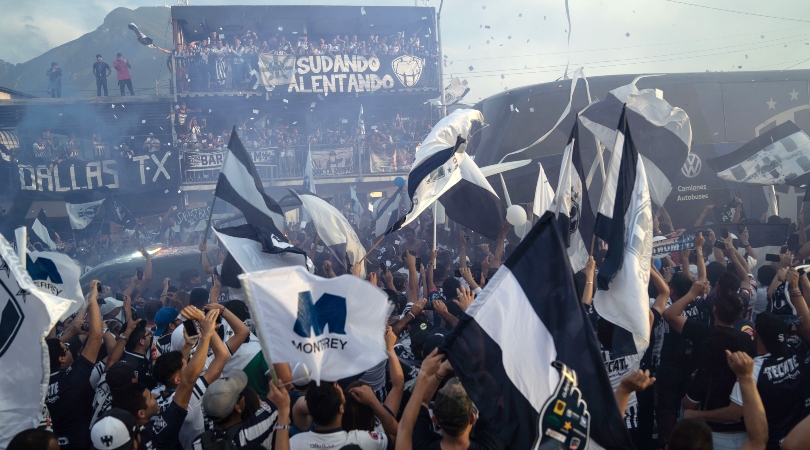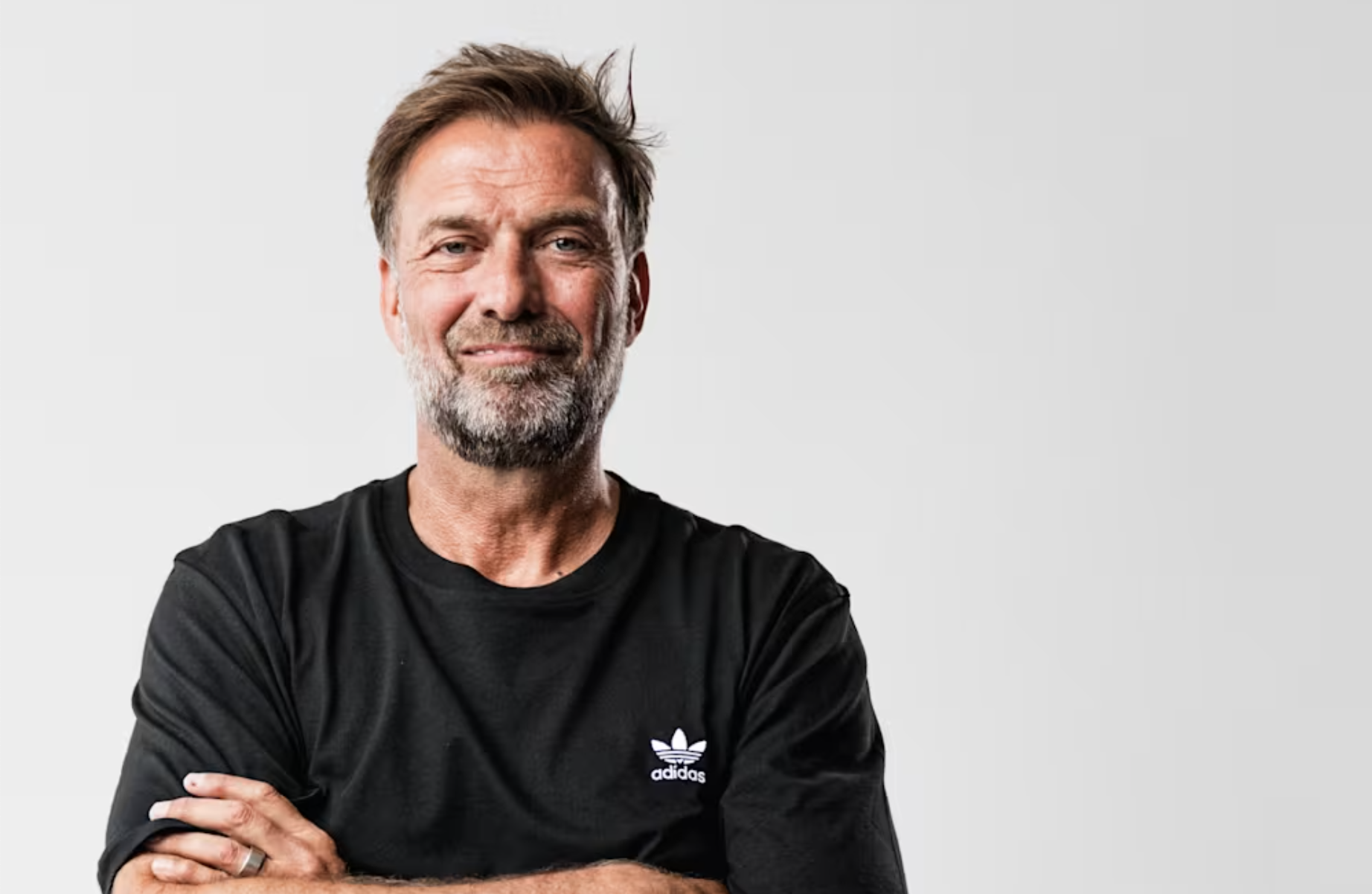How Red Bull Salzburg are trying to do things differently in their quest for European supremacy
The Austrian giants impressed in their first Champions League group campaign since 1994-95 – but it’s all just part of the plan. FFT headed to town for the Alpine experience aiming to produce its next Sadio Mané or Naby Keita...
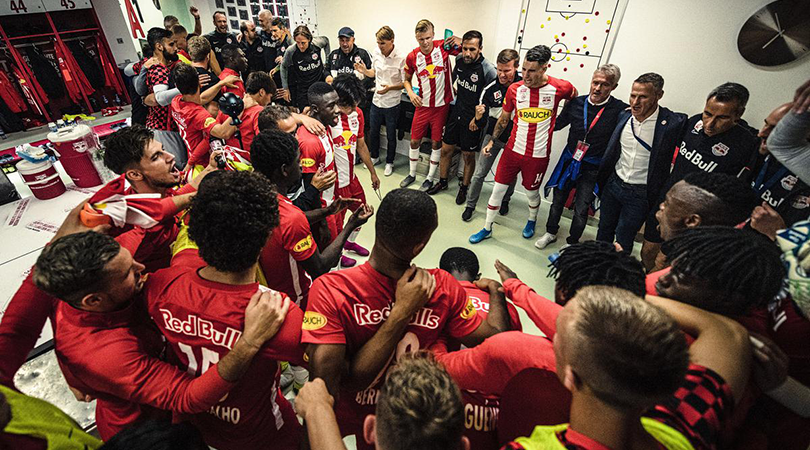
Jesse Marsch’s life changed in January 2015. That was when he met Ralf Rangnick. “He blew my mind,” Red Bull Salzburg’s American coach tells FourFourTwo. “I always thought of the game as playing in transition, and we had similar ideas and thoughts about football, but I didn’t know what was out there.”
Marsch’s meeting with the man nicknamed ‘The Professor’ – a godfather of German football who has been with the Red Bull group since 2012 – was not a coincidence. The American’s education in the art of gegenpressing has since set him on a journey traversing thousands of miles, multiple countries and viral internet fame.
The 46-year-old two-time USA international has stayed within the Red Bull cluster since taking the reins at their New York club almost five years ago, even if the drinks brand haven’t directly owned the club in 2016 and are now merely its main sponsor. The model has since become popular and adopted nevertheless by Manchester City, who use a far-reaching network of clubs within their City Football Group to develop players, managers and staff. Marsh left the United States in June 2018 to spend a year as Rangnick’s assistant at RB Leipzig in 2018-19, then landed Salzburg’s top job in June.
When FFT heads to the north Austrian city, Marsch is preparing his Salzburg side to face champions of Europe Liverpool, in what is arguably the biggest fixture in club history. In October, he went global for a documentary excerpt of his half-time team talk at Anfield earlier in the group stage. Salzburg were trailing 3-1 after 45 minutes, and Marsch had to act. “This is nicht ein f**king freundschaftsspiel (friendly),” he roared, mangling his native and adoptive tongue. It did the trick, as Salzburg temporarily pulled the tie back to 3-3 in the second half.
“Too many f-bombs!” Marsch chuckles now, reflecting on his speech. “But sometimes that’s the emotion of the moment. You can’t be emotional every half-time, because then people turn off. You have to get the feel for what the group needs in each moment. That was my feeling in that moment.”
It’s clear that psychology forms the biggest part of the 46-year-old’s modus operandi – perhaps surprising when working for a tactically obsessive former sporting director in Rangnick.
As Marsch explains: “I think that football is 25% tactics and training, and 75% leadership. If I read a coach’s book, I’ll flip through a lot of the tactical stuff because I have my own ideas. It’s not that I’m not learning or adapting, but I’m so much more driven and interested by the group dynamic details.
Get FourFourTwo Newsletter
The best features, fun and footballing quizzes, straight to your inbox every week.
“I have a file in my office that has over 30 small excerpts from my different readings for situations – like if a player’s low on confidence, or dealing with an injury or whatever it may be – that will help them think about how to continue striving to improve. Those things are very interesting to me.”
Marsch’s blue-sky thinking captured by a documentary crew might draw some unfavourable comparisons, but in person he is a charming and eager presence. Even his imperfect German is evidence of a willingness to learn and inspire his players.
“That shows the vulnerability, the imperfection of who I am and what I do, and that’s a big part of how I coach,” he confesses. “We have a lot of young players in our team and they have to know that making mistakes is OK; that part of the development process is learning from mistakes. If you listen to me and know German fluently, literally every sentence I make mistakes!”
“Whenever I see videos of myself trying to speak German, it’s always incredibly embarrassing, but I think it’s really important to understand the culture you’re working in. Language is a big part of that.”
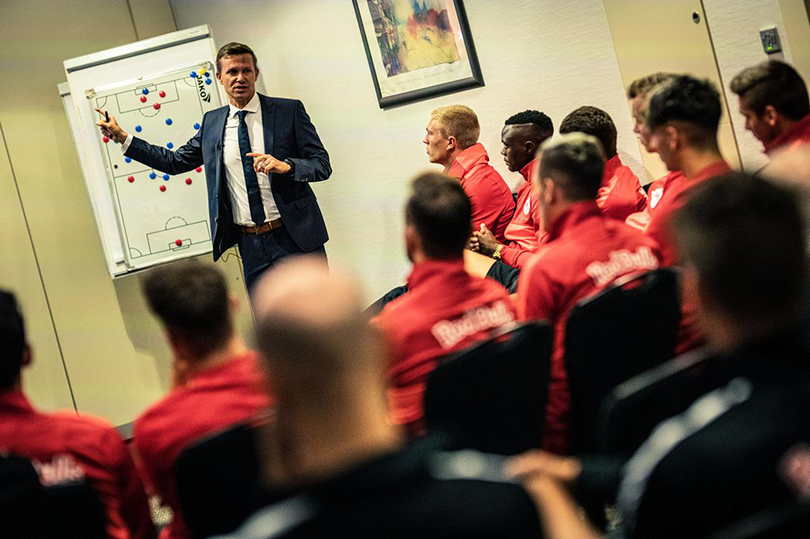
Salzburg’s culture as a club is clearly defined. “Literally everyone is aligned,” confirms Marsch. “That is from the academy, to the scouting, to the coaches. In every aspect of the organisation there is a clear identity, goal and vision.
“That allows everybody to understand how to commit to their job better. This is the easiest job I’ve ever had, because I’m surrounded by people that are better at what they do than I am. I don’t have to worry about their jobs – I can focus on mine. People need to have areas of expertise, trust each other and execute a plan. That’s in business and football.
“When I see big clubs that lack that, I ask myself, ‘How?’ How is that not the focus? What are the leaders doing?’”
Salzburg’s methods don’t appear to be rocket science, but they’re not particularly commonplace either. Marsch uses an explicit analogy to explain the whole club staff’s cohesion.
“I have a friend who is an author. He wrote a book on leadership and said that in the 1970s, if you showed up in Houston at NASA and asked everybody what they were trying to do – the janitor, the engineer, the astronauts – they all said, ‘We’re putting a man on the moon’. There was a clear vision, and everyone knew what their goal was and how to get there. I think that’s so important.”
The sporting director
Arguably, the key man on the ground is Christoph Freund, Salzburg’s sporting director since 2006.
Under Freund’s watch, Salzburg’s scouting department have worked wonders. In 2012, they picked up a little-known 20-year-old who had scored twice for Metz called Sadio Mané. The team pulled off a similar feat with Naby Keita, then 19, two years later.
Dayot Upamecano, Kevin Kampl and Duje Caleta-Car are also all major success stories that personify the Salzburg circle of life.
“We sell players to give them an opportunity to make the next step to a bigger club,” says Freund. “This is the story here. It’s important if we speak with young players, their agents and their parents, that we can show them a lot of players come here – not as big names, but now they’re playing in big leagues. This is very important for us as a club.”
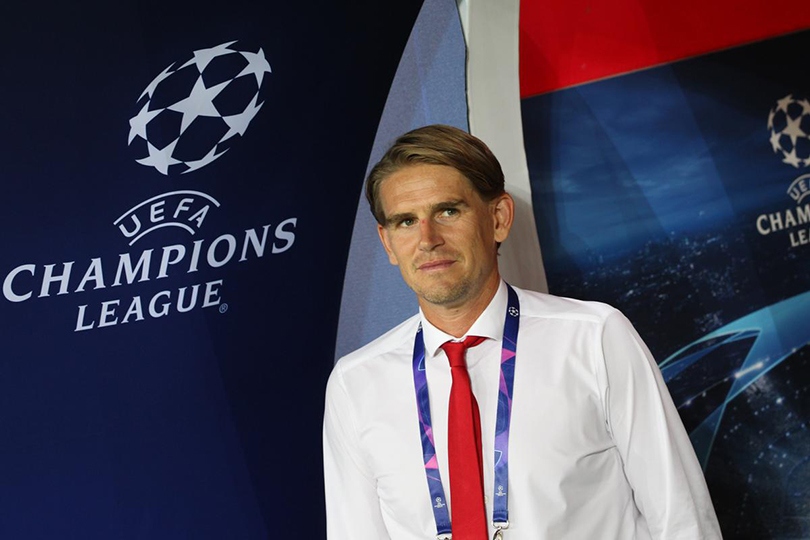
It’s a tacit agreement that serves all parties, and has now been exercised again as Japanese starlet Takumi Minamino joins Keita and Mané on Merseyside. It will surely only be a matter of time before Erling Haaland, too, makes a similar elite move.
“I think we’re different because we’re crystal clear,” says Freund. “Everyone knows in our scouting department which player we are searching for. We are only searching for 16 to 20-year-olds. We know which type of player we want to find.
“We need speed, intelligence, good mentality, good character, mentally sharp players. Maybe this is a little bit different to other clubs.”
Recruiting a Salzburg player requires a great deal more than cursory attendance at a match. Take Mané, for instance.
“We saw a lot of potential,” says Freund. “We saw his movements, his speed, his hunger to score goals. We met him personally and he was really clear that he wanted to make the next step.
“The mentality [of a player] is very important. I always say mentality is more important than talent. How is the player outside the pitch, how is he in training, what is his reaction when he loses a game, how is he with his team-mates?
“We try to get a lot of information around him, see things in training sessions and so on. Sometimes you see small things on the pitch, and you say, ‘Wow! It looks so easy when you make this movement’.”
Freund is proud that Salzburg have followed their vision so steadfastly, even as money floods in from their sharp selling practices. He stresses that hiring coaches who buy into their philosophy is crucial, even if they aren’t big names.
“Marco Rose (Salzburg’s former boss, now at Borussia Monchengladbach) was a youth team coach, and Jesse Marsch was not a big name in Europe,” he tells FFT. “We want to find players and coaches who are convinced by our way of working. This is the most important decision, 100%.”
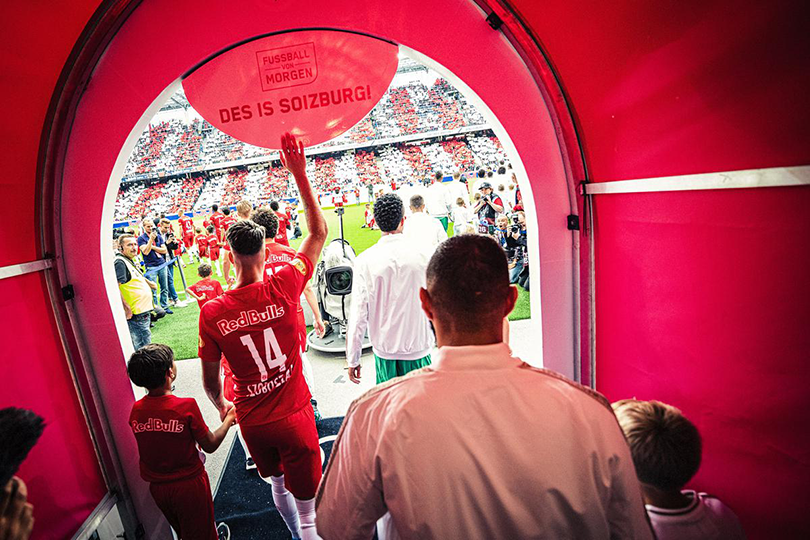
The academy
Salzburg have benefited from their attachment to Red Bull enormously. The Austrian giants – domestic champions for six seasons running – have access to the Red Bull Academy located in the beautiful shadow of the Eastern Alps, and home to starlets in both ice hockey and football. There, 400 players are seeking to reach similar heights themselves.
The cutting-edge facility, built in 2014, took 21 months to finish. It’s so impressive, in fact, that it inspired Liverpool’s new training facility.
Gym facilities are connected to a computer with training data stored remotely. Fitness coaches can formulate specific digital training programmes for every player, who can access them as they work out. Data is constantly stored and analysed.
In one room is a 360-degree ‘SoccerBot’, a ludicrous piece of technology which tests players’ spatial awareness and technical speed through a series of games. Matches can be digitally recreated for in-game virtual situational analysis. With the facility’s hulking hockey players, futuristic design and Alpine setting, it feels rather like the project of a Bond villain seeking to replace humanity’s infallibility with superhuman clones.
Discipline is rigidly enforced – players are not allowed to use phones or wear hats in the communal canteen, or access the internet in their rooms after 10pm. The dormitories don’t contain televisions, although one can be brought in provided it is less than 40 inches wide.
The facility has six outside pitches, and an indoor football hall – not to mention a Neymar-branded five-a-side zone. There are 120 staff, including 20 full-time football coaches.
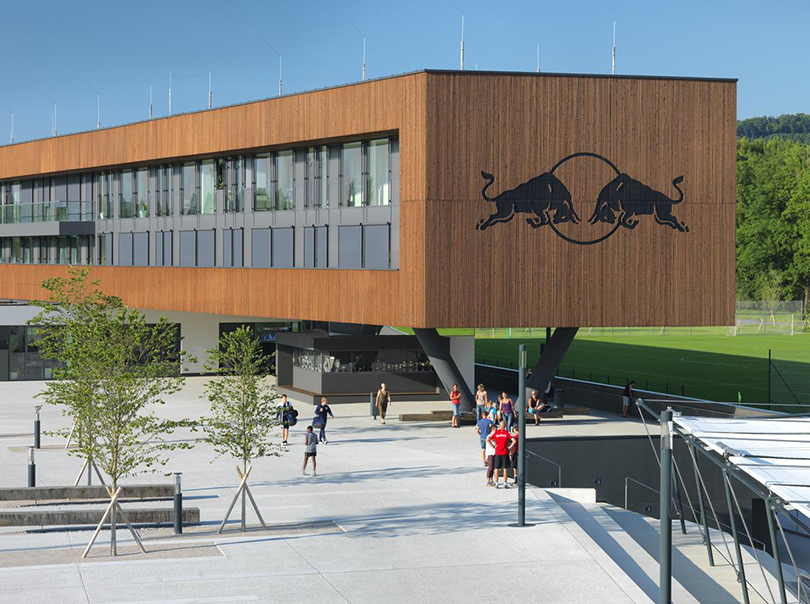
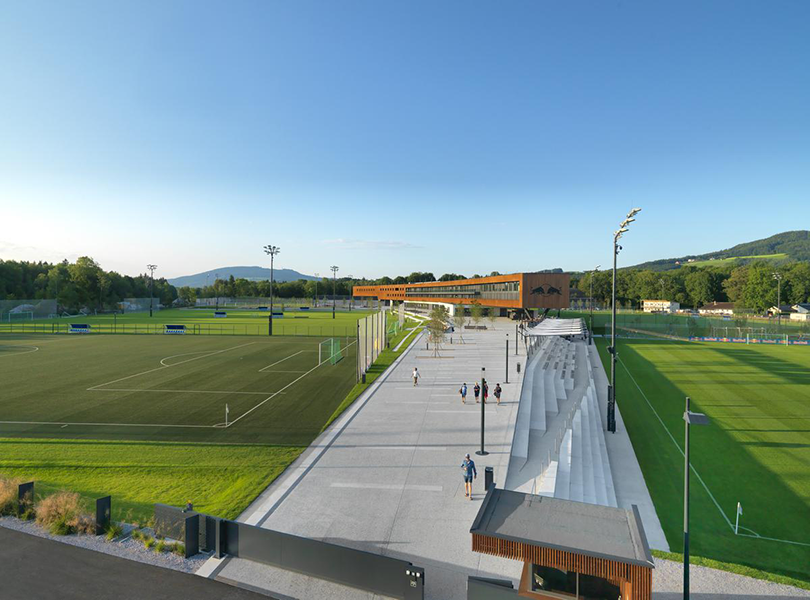
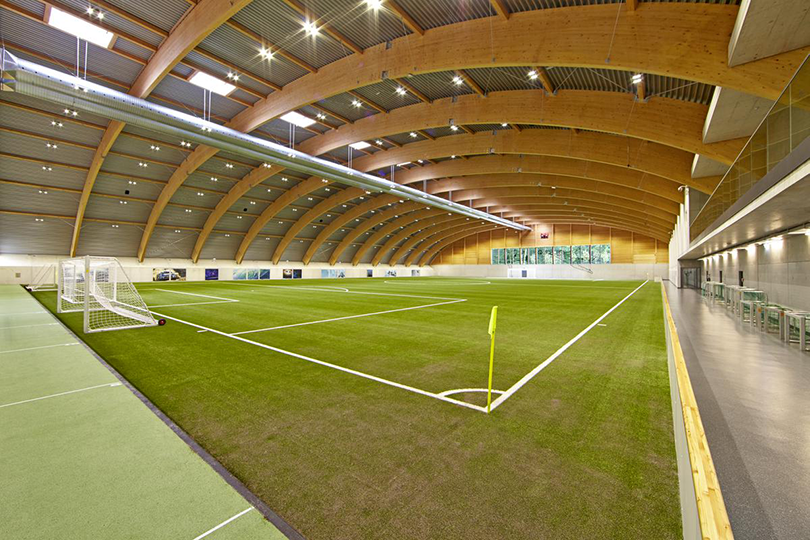
Former Germany youth team manager Frank Kramer is the academy’s sporting director, in control of all things football. Player recruitment comes in nationally from under-14 level, and continentally from under-15s. Kramer notes that players have to pack more than mere talent to be picked up nowadays.
“They have to be complete. That is the difference to the old days,” he says. “Ten years ago it was enough to have one weapon – like speed, skills, or strategy. Now you have to have a weapon, and you have to be quite complete as well.
“If you lack speed, you won’t arrive here. That’s clear. The gap between quality is so close now, and it’s an open field. Fifteen years ago it was just Austrians, now it’s worldwide.”
Sometimes Kramer & Co. have to wait years for an international identified before the age of 15. They don’t always land their target, but try to form “emotional links” with the boy and his family to prevent this.
Salzburg’s feeder club, FC Liefering, play in the second tier but have an average age of just 18.27 according to Kramer. The unique relationship with the Red Bull Academy means its teenagers can be getting regular senior action in the Austrian equivalent of the Championship far earlier than normal. And the transfer policy of Red Bull Salzburg as a whole means there are frequently gaps in the first team for academy prospects to fill.
Like Marsch and Freund, Kramer pays tribute to the singular vision running through the whole institution.
“You have to be close together, like it is here,” he says. “There aren’t many decision-makers here and they’re very close together.
“It’s like a bunch of friends coming together because of football. Freaks. And going in one direction – one highway.”
While you're here, why not take advantage of our brilliant subscribers' offer? Get the game's greatest stories and best journalism direct to your door for only £9.50 every quarter – that's roughly £2.90 per issue. Cheers!
NOW READ...
LIST The 100 Best Football Players in the World 2019
QUIZ! Can you name every Arsenal player with 10+ Premier League goals?
GUIDE Premier League live stream best VPN: how to watch every game from anywhere in the world
Alex Jennings spent the 2019-20 season on loan at FourFourTwo writing digital features and now works on the Daily Mail’s sport desk. He has also written for the Independent and is a proud Italophile. As a fan of Everton and the England national cricket team, he is, frankly, tired by success.
